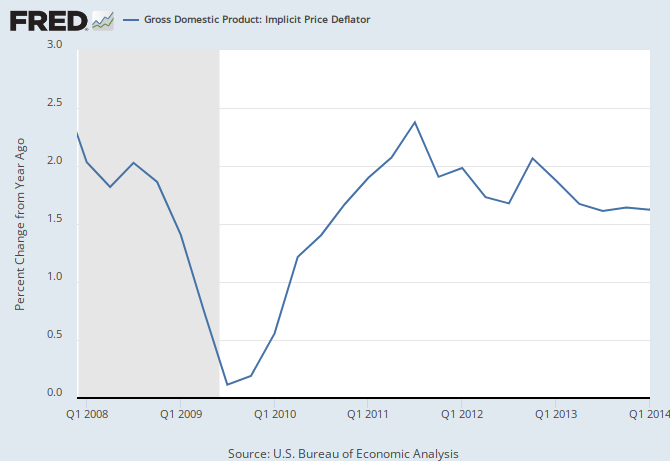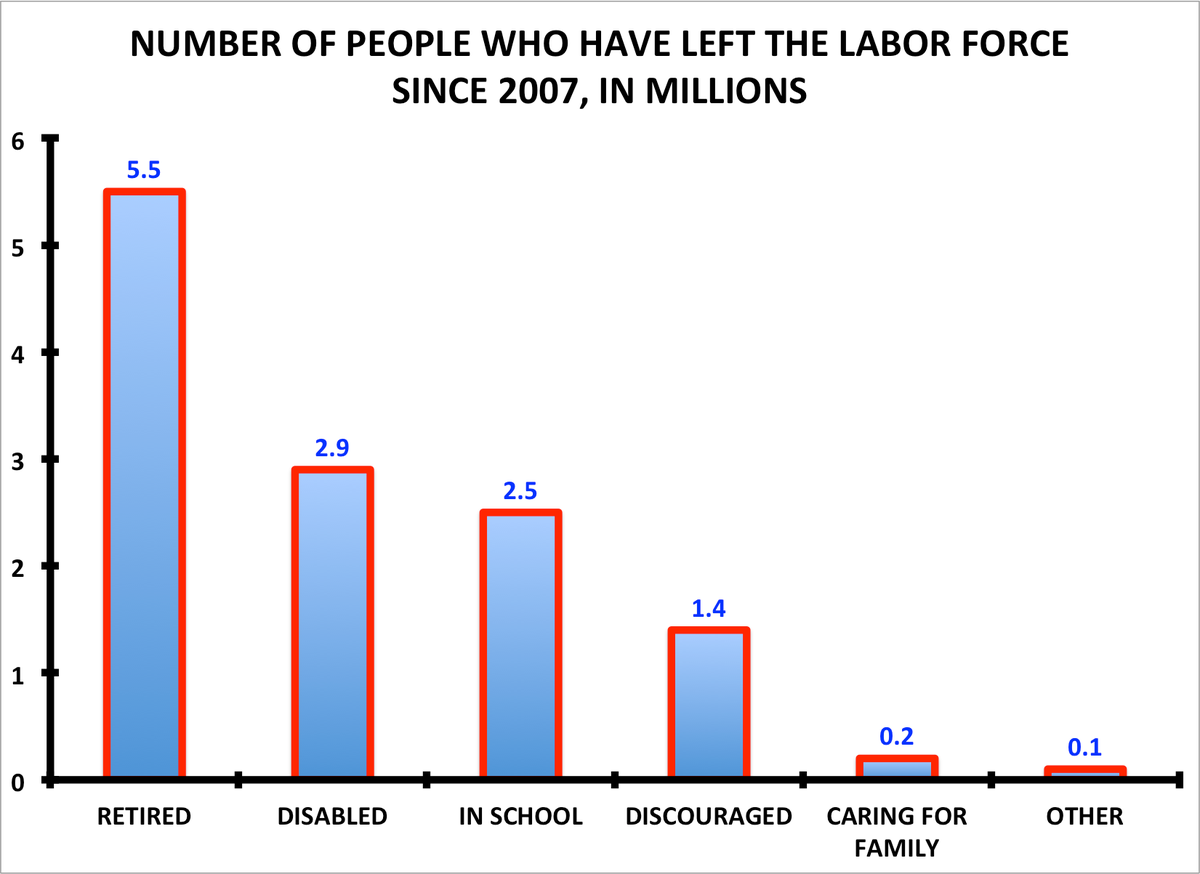This is an inaccurate characterization.
The LFPR did drop due to the recession, and isn't going up. However, the peak was actually in
2001.
We should also note that men have been steadily leaving the workforce since 1950:
The reason why LFPR has been increasing since the 1950s is basically because women were joining the workforce.
There are some short-term influences; e.g. people are retiring early or spending more time in school because of the recession. But there really aren't a lot of policy changes that are affecting LFPR.




